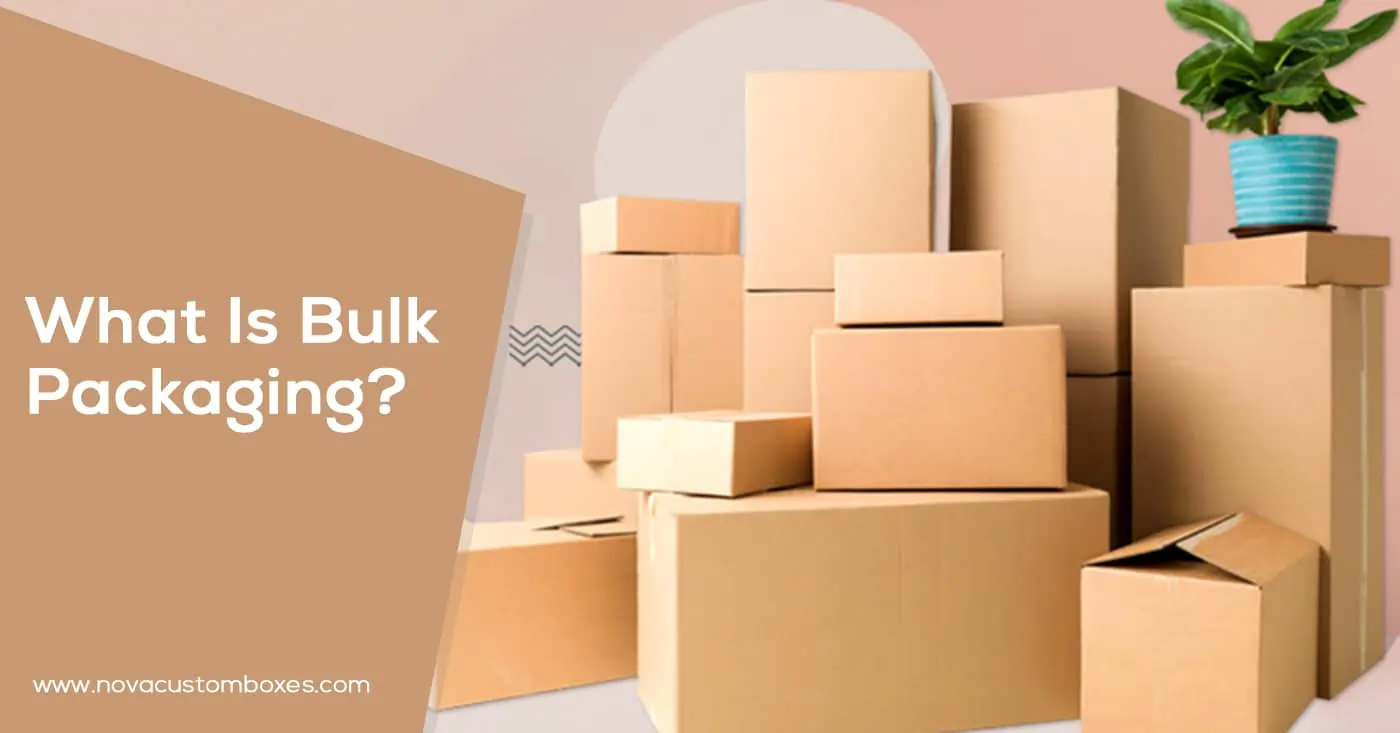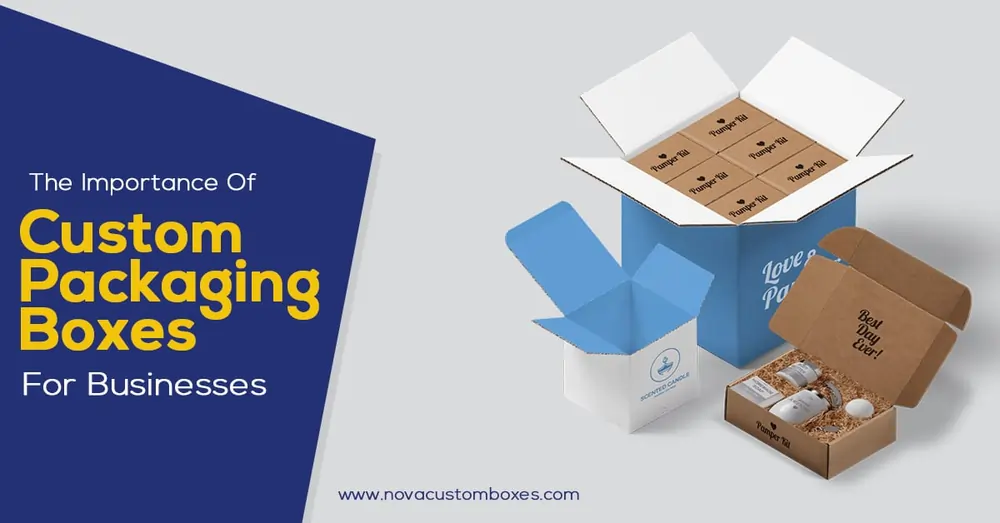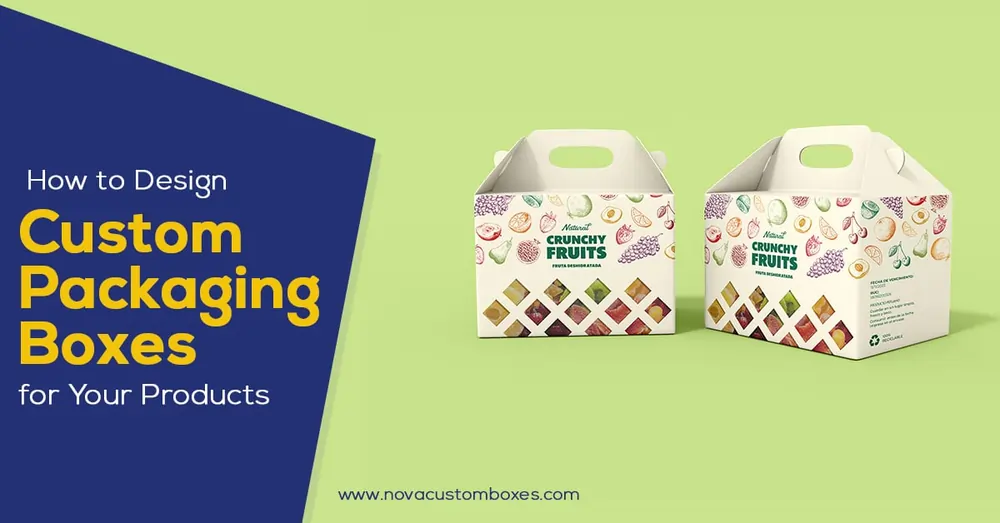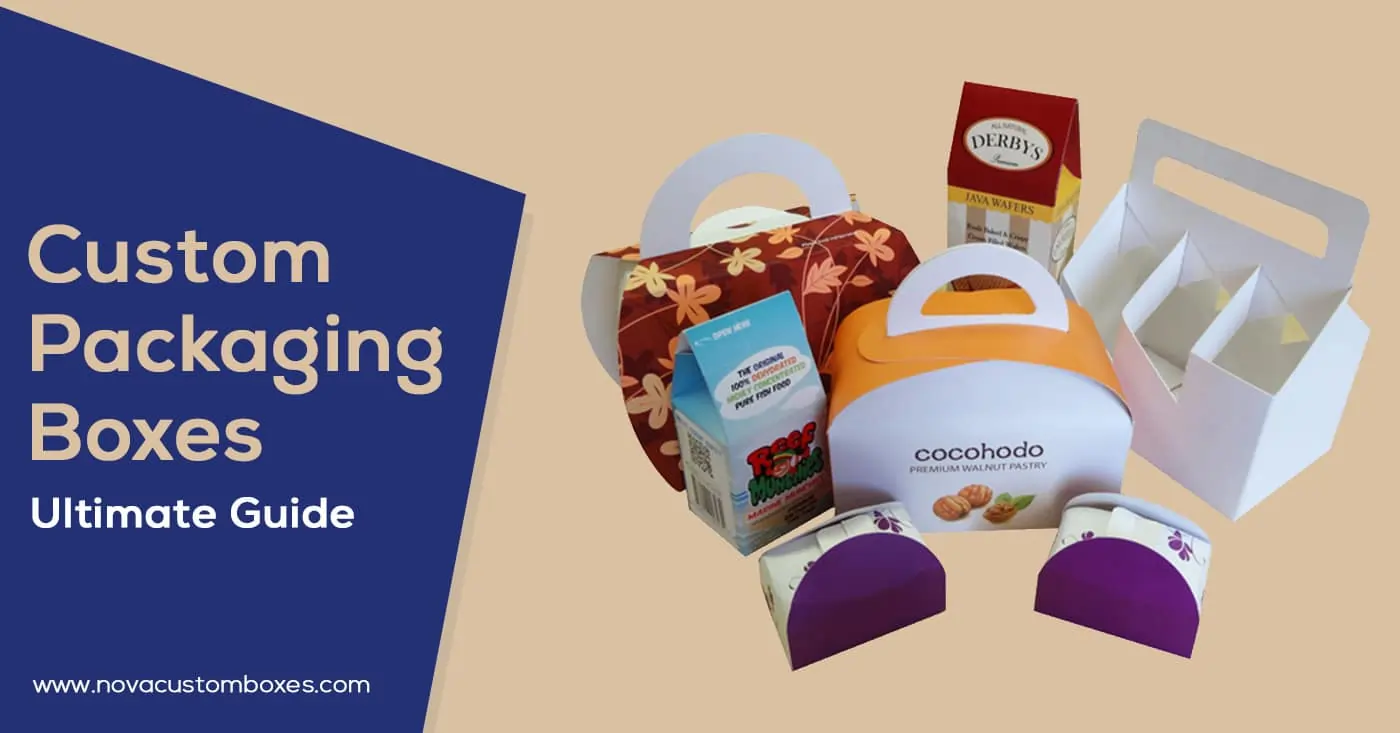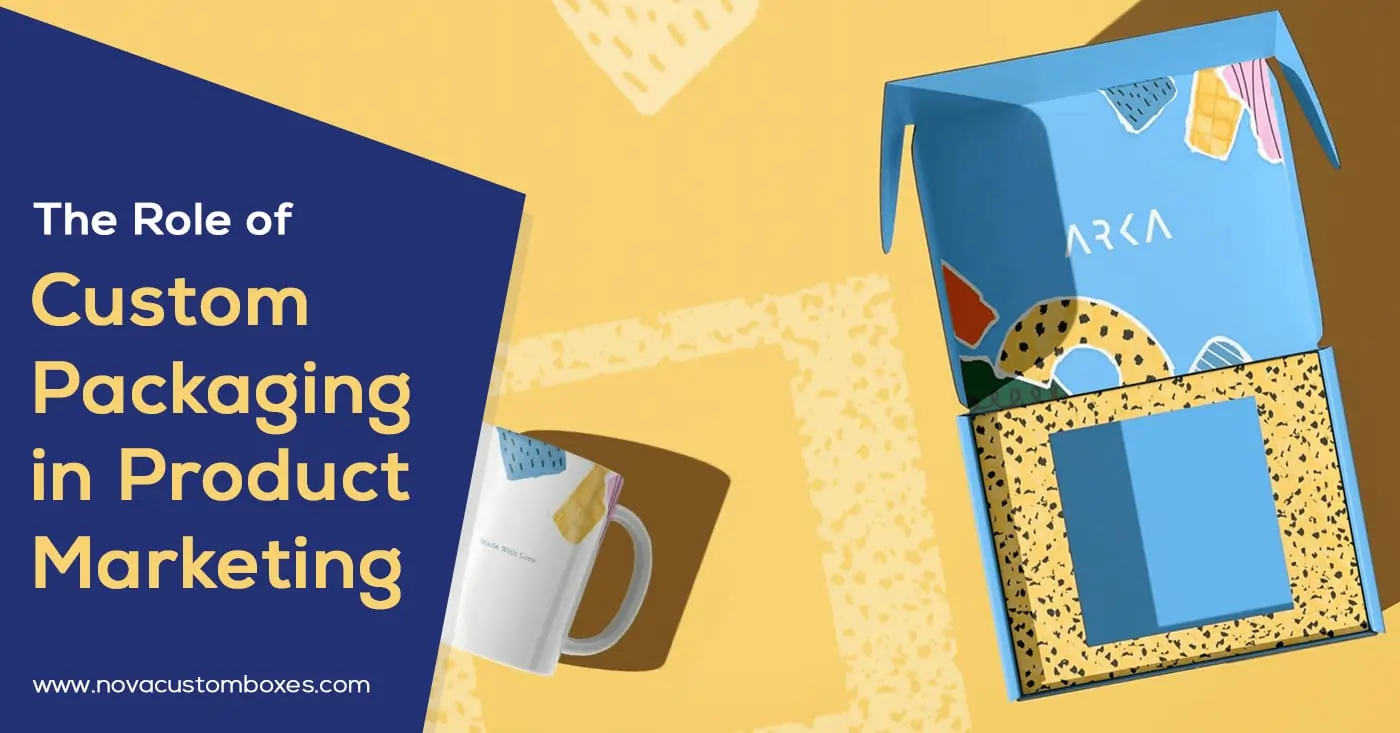Are you figuring out what is bulk packaging? If you answer yes, you’ve come to the right place! We’ll explain what bulk packaging is, how it can benefit supply chains, and why more companies choose it.
Bulk packaging provides cost savings and improved efficiency in the shipping, storage, and handling of products which helps companies reduce their overall distribution costs.
Additionally, bulk packaging offers reduced labor costs due to its automated process capabilities. It makes it an attractive option for many businesses looking to improve operational efficiencies and reduce time spent on product management tasks. Food boxes, custom product boxes, and custom retail display boxes can all benefit from bulk packaging.
What Is Bulk Packaging?
Bulk packaging refers to packing and storing products in larger quantities instead of individually or in small batches. It is an important part of many companies’ supply chains, especially for businesses dealing with large volumes of goods.
Bulk packaging can be used for a broad range of products, from food items to electronics and everything in between. The packaging materials used can also vary, depending on the products being stored and the desired shelf-life of the goods.
Bulk packaging is often more cost-effective and efficient than storing goods individually. It allows businesses to streamline their processes and optimize their storage space, reducing costs and increasing productivity.
Advantages Of Bulk Packaging
One of the many advantages of bulk packaging is its ability to preserve the quality and freshness of goods. By keeping perishable items such as food and pharmaceuticals in vacuum-sealed packs, bulk packaging helps to extend the shelf-life of these goods, reducing the risk of spoilage and waste.
Another benefit of bulk packaging is increased safety during transportation. Standardized bulk packages make transporting goods safely and securely easier, reducing the risk of damage or contamination during transit.
In many cases, bulk packaging can also be reused or recycled, reducing its overall environmental impact. By reducing the amount of packaging used, companies can help to reduce waste while improving the sustainability of their operations.
Bulk packaging plays a crucial role in supplying products to customers. It allows businesses to streamline their processes and optimize storage space while preserving the quality and safety of goods. Using bulk packaging, companies can reduce waste, increase efficiency, and safely transport their products to customers.
Types Of Bulk Packaging

When it comes to the food industry, having reliable and effective packaging is crucial to ensure that products stay fresh and safe for consumption for as long as possible. And regarding bulk packaging, several options are available to businesses.
Cryovac Packaging
Let’s start with Cryovac packaging, one of the most popular types of bulk packaging in the food service industry today. Cryovac is a vacuum-sealing technology that helps extend the shelf life of products by up to five times longer.
This packaging also helps preserve the quality and freshness of the products by preventing air and moisture from getting in. And because the transparent packaging makes it easier for customers to see the products inside, which can increase sales.
Lastly, Cryovac packaging is also cost-effective as it can be customized to fit various bulk quantities and sizes without needing extra storage space.
You may also read What Is Grayscale Printing?
Pallets
Pallets are a classic choice for bulk packaging and for a good reason. They are sturdy, reliable, and easy to move around, making them ideal for transporting large quantities of products. Additionally, pallets can be stacked on top of each other, saving valuable storage space.
One potential downside to pallets is that they may require more handling than different packaging types, leading to increased labor costs. But overall, they are a popular choice among businesses for their practicality and durability.
Drums
Drums are another common type of bulk packaging widely used in the food industry. They typically hold between 30 and 55 gallons of product, making them ideal for liquid food items such as oils or syrups.
These are also relatively sturdy and can be easily moved with a pallet jack or a forklift. One notable advantage of drums is their reusability, as they can be cleaned and refilled multiple times, reducing waste and saving costs over time.
Bags
Bags are also a popular choice for many businesses. They come in all customized shapes and sizes to fit various quantities and products.
They are also lightweight and easy to store. Lastly, they are generally less expensive than other types of packaging, which can help businesses save money.
Bulk Vs. Non-Bulk Packaging: Understanding the Difference
Packaging is vital in the food service industry as the primary way to protect and preserve different products.
However, not all packaging is created equal, and businesses must understand the different types of packaging available to make the most informed decisions for their specific needs.
The main difference between bulk and non-bulk packaging is the amount of product held and the product’s packaging type.
While bulk packaging offers cost savings and convenience for businesses dealing with large quantities of products, non-bulk packaging provides greater flexibility and control when dealing with perishable items or products that require smaller portions.
Bulk Packaging
Bulk packaging refers to large containers or bags designed to hold a considerable amount of product.
Typically, bulk packaging is best suited for goods sold in large quantities or used frequently, such as coffee beans, sugar, flour, or salt. Bulk packaging is popular in the food service industry because it saves businesses money by buying in larger quantities, reducing the cost per unit.
One of the primary benefits of bulk packaging is its cost-effectiveness. It saves businesses money on packaging and transportation costs while reducing waste.
With bulk packaging, businesses can purchase the amount of product they need in one shipment instead of multiple smaller ones, which can be time-consuming and expensive.
Non-Bulk Packaging
Non-bulk packaging, on the other hand, refers to smaller containers or bags designed to hold individual or smaller quantities of products.
This type of packaging is ideal for perishable items, such as fruits, vegetables, meat, and dairy products, which require more protection and often have a shorter shelf life.
The primary benefit of non-bulk packaging is greater control over portion sizes, inventory management, and waste reduction.
Unlike bulk packaging, which is designed to hold large quantities of product, non-bulk packaging comes in various shapes and sizes. It can allow businesses to offer their customers a wider range of products.
Ultimately, the choice between bulk and non-bulk packaging depends on business-specific factors such as product type, shelf life, inventory management, and customer needs.
Whatever packaging solution a business chooses, it is crucial to prioritize safety, sustainability, and quality to ensure successful operations.
Example Of Non-Bulk Packaging
Non-bulk packaging refers to the packaging of products in individual packages or containers. This packaging method is commonly used for retail products and consumer packaged goods. Examples of non-bulk packaging include single-use plastic bags, cardboard boxes, and shrink-wrap packaging.
Non-bulk packaging offers several advantages in terms of marketing and branding. Retailers can use custom packaging to promote their brand and attract customers. However, non-bulk packaging also has several disadvantages, particularly in terms of the costs associated with packaging and transportation.
Non-bulk packaging requires more material and labor to package individual products, which can increase costs. Also, non-bulk packaging is less efficient in transportation and storage since each product requires packaging. It can lead to higher transportation and storage costs, which can ultimately be passed on to the consumer.
Bulk Packaging Materials
Bulk packaging materials are specifically designed for packaging products in large quantities. These materials are used for transportation and storage while protecting products from damage. Some common materials used for bulk packaging include corrugated boxes, bulk bags, plastic drums, and pallets.
Corrugated boxes are made of sturdy cardboard material and are ideal for shipping products that must be protected from transport damage.
Bulk bags are large fabric containers perfect for storing and transporting dry goods such as grains, powders, and granules. They are strong and can be customized to fit different products and storage requirements.
Plastic drums are made from diverse plastic materials like high-density polyethylene (HDPE) and are an excellent option for packaging liquids, oils, and chemicals. They offer superior strength and are resistant to corrosion and leaks.
Another commonly used bulk packaging material is pallets, which transport multiple packages on a single platform for ease and efficiency.
Bulk Packaging For Small Businesses
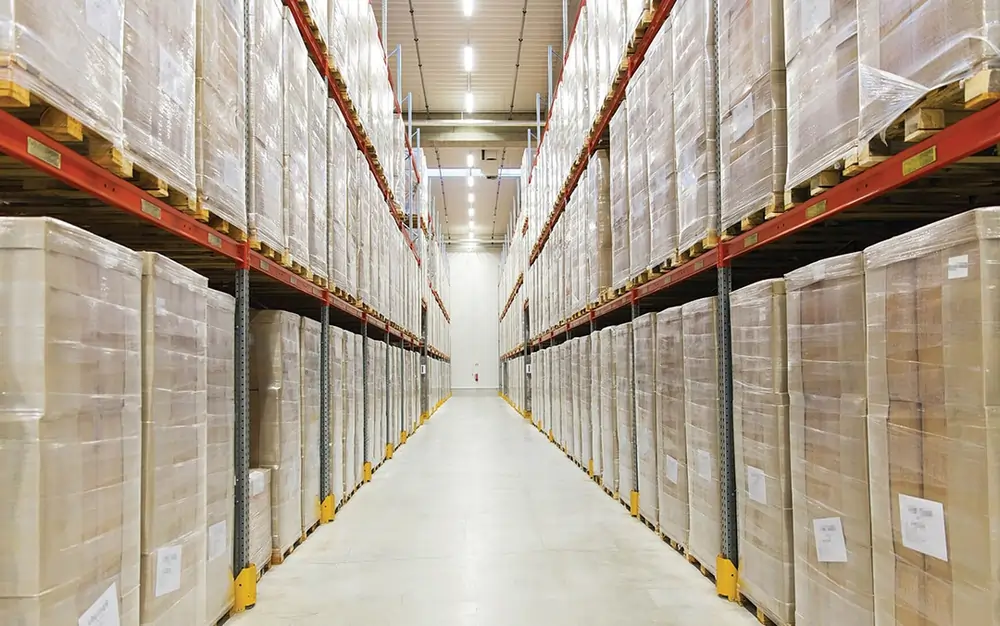
If you’re a small business owner, you know how important it is to streamline your operations and cut costs wherever possible. One area that can significantly impact your bottom line is your product distribution process. That’s where bulk packaging comes in.
Bulk packaging can help small businesses reduce their overall distribution costs by providing cost savings and improved efficiency in shipping, storage, and handling of products.
The benefits of bulk packaging are particularly important for small businesses, as they typically have fewer resources and need to make every dollar count.
- One advantage of bulk packaging is that it can save you money on packaging materials. Instead of packaging individual products in bags, boxes, or other containers, bulk packaging involves packaging multiple products in larger containers. It reduces the number of packaging materials needed and makes transporting and storing products easier, which can help reduce transportation and storage costs.
- Another benefit of bulk packaging is that it can help you save time and reduce labor costs. Many bulk packaging systems are automated, so they can quickly and efficiently sort, package, and label products without manual labor. It can help small businesses save time and reduce labor costs, especially if they need more resources to hire additional staff.
- Furthermore, bulk packaging can help small businesses reduce the risk of product damage during transportation and storage. Products packaged in larger containers are less likely to shift or move around during transport, which can help decrease the likelihood of damage.
If you’re a small business owner looking to streamline your operations and cut costs, consider incorporating bulk packaging into your distribution process.
Nova Custom Boxes: The Perfect Choice For Bulk Packaging
If you’re looking for a reliable packaging solution for your business, you should check out Nova Custom Boxes. Nova Custom Boxes provide custom-made boxes for bulk packaging needs, and they excel at what they do. Here’s what makes Nova Custom Boxes the perfect choice for bulk packaging.
High-quality Materials
One of the biggest advantages of using Nova Packaging is that they use high-quality materials for their boxes. The boxes are made from durable materials that can withstand the rigors of shipping and handling. This means that your products will be well protected during transit, and there will be no damage to the products when they arrive at their destination.
Customized Designs
Nova Packaging also provides personalized packaging solutions, allowing you to create custom boxes.
With their advanced printing methods, you can personalize your packaging with your brand name and logo and any other design that suits your business. This level of customization enhances the perceived value of your products in the eyes of your customers, giving you a competitive edge over your competitors.
Sustainable And Environmentally Friendly
In today’s world, it is important to be environmentally conscious, and Nova Custom Boxes is committed to sustainability. Their manufacturing process uses eco-friendly materials; their boxes are recyclable and biodegradable. This means you can use their boxes while reducing your business’s carbon footprint and contributing to a greener future.
Cost-effective
Bulk packaging requirements are usually quite substantial, and the associated costs can be high. However, with Nova Custom Boxes, you can enjoy a cost-effective solution for bulk packaging. As the boxes are custom-made to suit your needs, you only pay for what you need, making it a cost-effective option for businesses.
Closing Thought
So, by now, you get an idea of what is bulk packaging and how it has become an integral part of supply chain management. Many companies, due to their cost-saving benefits and improved efficiency in handling, storing, and shipping products.
The automated process capabilities of bulk packaging reduce labor costs, making it a popular choice for businesses looking to improve operational efficiencies and reduce time spent on product management tasks.
With the rise of e-commerce and global trade, bulk packaging has become more crucial than ever as the demand for cost-effective and sustainable packaging solutions continues to increase.
By adopting bulk packaging, businesses can streamline their supply chain processes, reduce their overall distribution costs, and boost their bottom line.
As such, it’s no surprise that more and more companies are choosing bulk packaging as their preferred solution.

